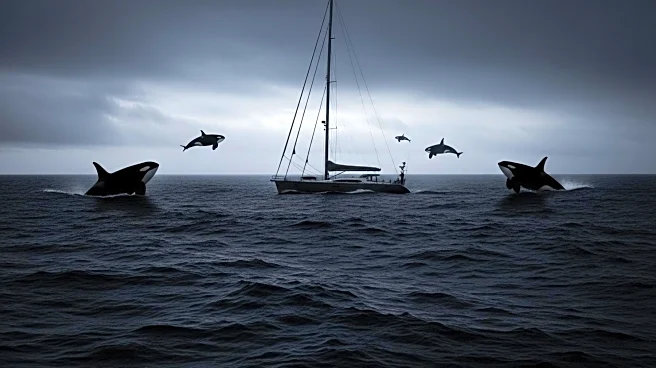What's Happening?
A family of five experienced a harrowing encounter with orcas off the coast of Portugal, resulting in their yacht being sunk. The incident occurred when the yacht's rudder was struck by a pod of Iberian orcas, causing the vessel to spin and eventually sink. The family, including three young children, managed to launch their life raft and were rescued by a nearby fishing boat. This marks the second yacht in a month to be sunk by orcas in the region. The attacks, which have been ongoing for years, are believed to be a form of play by the orcas, targeting slow-moving sailing yachts with large rudders. Despite the aggressive behavior, there have been no recorded fatal orca attacks on humans in the wild.
Why It's Important?
The repeated orca attacks on yachts in the Iberian Peninsula raise significant safety concerns for mariners in the area. These incidents highlight the need for increased awareness and potentially new safety measures for those sailing in orca-populated waters. The behavior of the orcas, while not directly targeting humans, poses a risk to property and safety, necessitating further research and understanding of these marine mammals. The situation also underscores the importance of emergency preparedness for sailors, as quick and effective rescue operations are crucial in such scenarios.
What's Next?
Marine authorities may need to consider implementing guidelines or advisories for sailing in regions known for orca activity. Researchers might explore the motivations behind the orcas' behavior to develop strategies to mitigate these interactions. Additionally, sailors in affected areas could be encouraged to take precautionary measures, such as avoiding certain routes or times when orca activity is high.
Beyond the Headlines
The incidents could lead to broader discussions on human interactions with marine life and the ethical considerations of sailing in habitats where wildlife is known to exhibit aggressive behavior. Understanding the orcas' motivations could contribute to conservation efforts and inform policies on marine wildlife protection.








